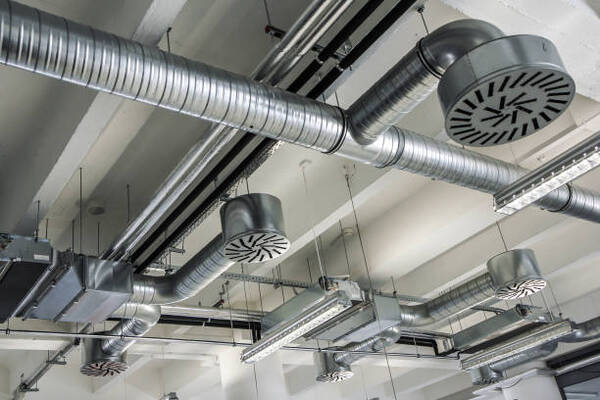- 1-905-452-8193
- Contact Us
- Member Login
- Get Listed Today
- 220,911 members

HVAC systems, or Heating, Ventilation, and Air Conditioning systems are a vital part of any home or commercial building. They provide the necessary airflow and temperature control to keep occupants comfortable while keeping energy consumption low. Despite their ubiquity, many people are unaware of how these air conditioning Brisbane systems work, what they do, and how they can be maintained.
To better understand these important elements of any building’s infrastructure, the following list is a comprehensive FAQ on HVAC systems - covering all the basics and helping you determine whether your building needs a new system installed or just regular maintenance and repair.
Make use of the guide to using, maintaining, or replacing your HVAC system to help you make informed decisions about the product.
What Is an HVAC System?
An HVAC system is a complex network of components that regulate airflow and temperature in buildings. This includes heating coils (such as furnaces), cooling coils (such as air conditioners), exhaust fans, ductwork, vents, registers, thermostats, humidifiers/dehumidifiers and zoning systems. These components are all connected to create a cohesive system for providing comfort control in both residential and commercial properties.
What Does an HVAC System Do?
The main purpose of an HVAC system is to provide ventilation and temperature regulation throughout a building – this includes both heatings during winter months and cooling during summer months. The system monitors the area’s temperature with sensors located throughout the building which communicate with the thermostat to adjust settings accordingly. It also provides adequate levels of humidity utilizing either humidifiers or dehumidifiers if needed; this helps maintain healthy living conditions inside the property while also reducing energy costs by keeping temperatures consistent in each room or area of the building.
How Often Should I Have My HVAC System Serviced?
Even if most HVAC systems last for many years without needing major work done to them, you must have your system serviced regularly (ideally twice per year) by a qualified technician to ensure that it continues running efficiently without any hiccups or malfunctions.
During these visits your technician will check for signs of wear and tear such as loose wiring connections or clogged filters; if caught early enough these issues can be fixed before they cause any serious damage down the line. It’s also beneficial to have your unit tuned up annually so that it can run more efficiently and save you money on your energy bill over time!
What Are Some Common Issues With HVAC Systems?
The most common issue with an HVAC unit is poor circulation caused by clogged filters or dirty ductwork – which in turn leads to inadequate airflow through different parts of the building leading to uneven temperatures throughout its areas.
Another problem can be malfunctioning thermostats which may not register changes in temperature properly or even cause energy bills to skyrocket due to inefficient operation. Lastly, faulty wiring connections can lead to inefficient heating/cooling cycles due lack of power being sent through them correctly – resulting in inconsistent temperatures in rooms where they should be equalized instead!
Are There Any Ways To Reduce Energy Costs Associated With My HVAC System?
Yes! One way is by making sure all components within your HVAC unit are at peak efficiency; regular maintenance visits by qualified technicians will ensure that any worn-out parts are replaced promptly before they start causing problems down the line.
You could also look into investing in “smart” features such as programmable thermostats which allow you to set specific times when certain rooms should be heated/cooled based on occupancy patterns – this will help conserve energy when it isn’t needed while still providing adequate comfort levels inside those areas whenever necessary!
Lastly, installing insulation around doors/windows helps reduce heat loss from outside air entering into enclosed spaces – meaning lower overall bills all year round!
In conclusion, having some basic knowledge about how HVAC systems work is crucial for ensuring proper care for one's property. Hopefully, this FAQ on HVAC systems has given you enough information so that you can make informed decisions about whether you should get one installed fresh or just stick with regular upkeep instead.
